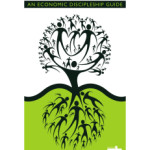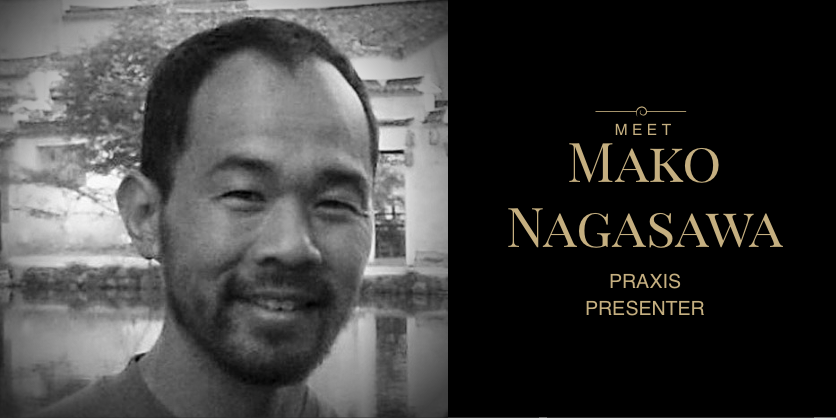Coupling a background in public policy and industrial engineering with a spiritual fervor for making things just in the world, Mako Nagasawa brings expertise to the confluence of theology, practice, and public policy. Mako Nagasawa also brings his expertise to this year’s Praxis Gathering as one of the many exciting, missional presenters.
Mako is involved in numerous missional-justice fronts. He is a coauthor of Lazarus at the Gate: An Economic Discipleship Guide, a small group guide designed to help renew minds in the area of spending. Lazarus at the Gate offers missional perspectives on personal spending and is designed to help participants become more others focused with their finances.
Shortly after launching the curriculum in 2007, the Boston Faith & Justice Network began working with the Lazarus curriculum to increase the presence and impact of Lazarus at the Gate groups throughout Greater Boston.
Mako has also effectively implemented the curriculum in his role with InterVarsity Asian Christian Fellowship by leading Global Poverty Impact small groups for students at Boston College. He has long been a part of the InterVarsity Asian Christian Fellowship staff, serving at Boston College, Boston University, MIT, Tufts, and Harvard. His role with InterVarsity ACF provides him with a front row seat to the changing demographics within the younger generation, allowing him to see where cultural trends are headed.
For over two decades, Mako has been serving in urban ministry. He is a director at the New Humanity Institute, whose mission is to “explore and explain how the earliest Christians saw Jesus as sharing in our broken humanity, and sharing his healed new humanity with us.”
You can learn more about Mako Nagasawa, his wife, Ming, and their two children, John and Zoe, on their website. Sign up as a prayer partner and keep up with the ways God is using Mako to inform culture via missional approaches to justice and righteousness. Support him as he addresses systems in need of grace and advocacy.
Lazarus at the Gate
 Read Mako’s insights in this excellent write up in the Huffington Post titled “What Would Jesus Spend His Money On?”
Read Mako’s insights in this excellent write up in the Huffington Post titled “What Would Jesus Spend His Money On?”
From the piece:
College students seem especially interested since Lazarus campus groups have attracted interest from non-Christians who sense a portion of their money could be used in better ways for greater impact.
‘People are looking for a framework for social justice or something, and they have a hunger for it in their heart, and they don’t know how to articulate it or interpret it,’ said Mako Nagasawa, co-author of the Lazarus curriculum and an advisor to the Asian Christian Fellowship group at Boston College.
‘We want to say it comes from being made in the image of God and being redeemed by Jesus.’
[Tweet “People are looking for a framework for social justice; they have a hunger for it in their heart”]
The Heart of Restorative Justice and the Heart of the Christian God
Watch Mako teach on the four forms of justice and why God is the best argument for positing justice as necessary in society.
From his lecture:
I believe there is a Christian order for social justice…And it goes like this:
That restorative [justice] is first because God has a vision for relationships. We see it in Genesis already when we see God say to Cain, “Where is your brother?”
And he [Cain] says, “Am I my brother’s keeper?” and the implicit answer is yes. Yes!
What does that entail? Well, we learn about that.
So, God has a vision. This is why Jesus calls us to love our enemies and forgive those who sin against us, because, actually, his vision for relationship comes before our emotions, and he calls us into his vision.
The second is distributive justice. The third is meritocratic, and the forth is libertarian.
Evangelism in the New Humanity Paradigm
Why is Jesus Good News?
An excerpt:
Social Activist: So this sounds different than what I was taught when I grew up in church. I was taught that Jesus saves us from God, who is about to throw us into hell because He’s pissed off. I thought Jesus was our ‘get out of hell’ card, our afterlife insurance.
Me: I’m aware of that kind of thing. What’s your response to that?
Social Activist: Well it makes God seem more focused on the next world, and less on this one.
Me: Yeah, that never made much sense to me, either. I think God is focused on healing this world, and healing our human nature. He is wrathful, but against the spiritual cancer in us, the corruption and brokenness in us. He loves us and wants to heal us so that we can reflect His image again.
Social Activist: Well, I think Christians waste a lot of time in church, just singing and getting their shout out. Why can’t people just get out there and do some good?
Me: Great question. On the one hand, I totally agree that Christians can be more effective. On the other hand, some of the greatest social movements were because of the church and Jesus: the Civil Rights Movement led by the Black church, the Filipino People Power Movement led by Catholics, and so on. I think that our emotional needs and spiritual needs are also important, along with our physical needs, and that Jesus calls us into relationships in which we get to practice being other-centered like he is.
Social Activist: I think we’ve just got to change laws, schools, structures, and systems. We have to empower poor people. That’s going to be more effective anyway.
Me: I’m with you when it comes to changing those things. I’m part of [a group of people giving to microfinance]. And I’m glad you’re doing your part, too. But I think what you’re doing is assuming that things external to us are the source of the problem. I think you’re missing the biggest problem, the internal factor: human nature.
Read the entire publication here.
“Meet Mako at The Praxis Gathering!”
Share this Post

